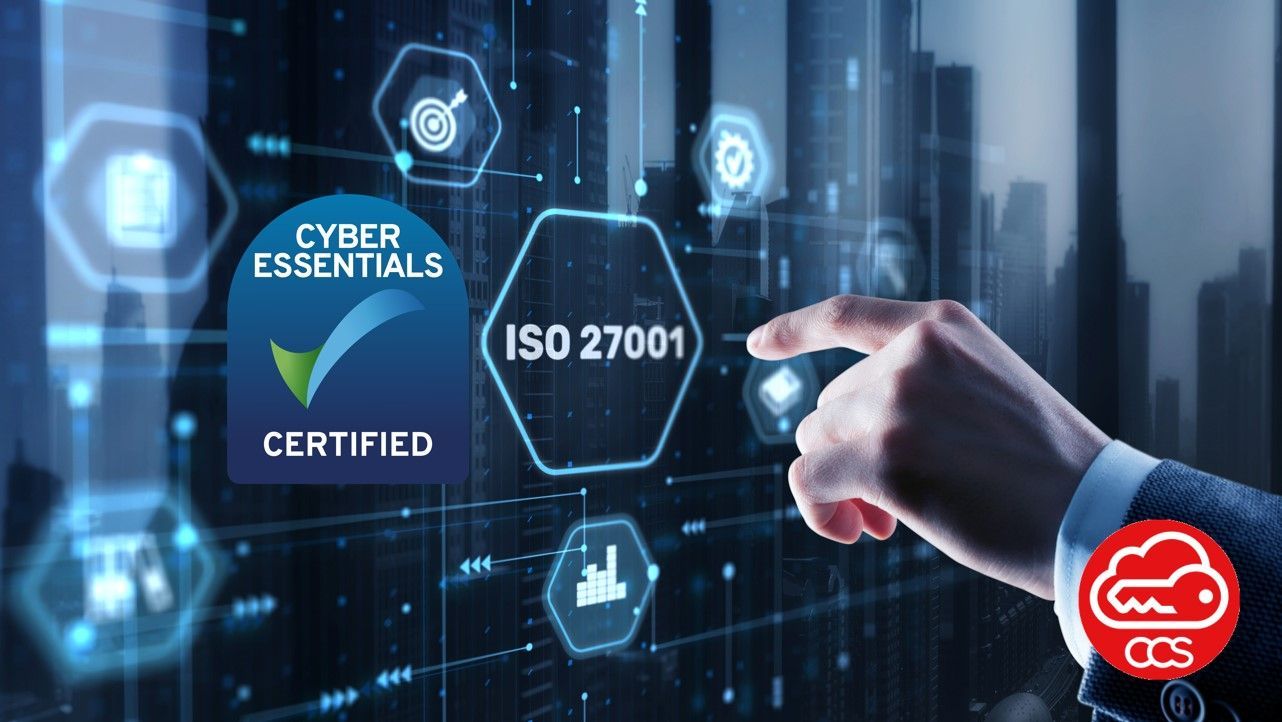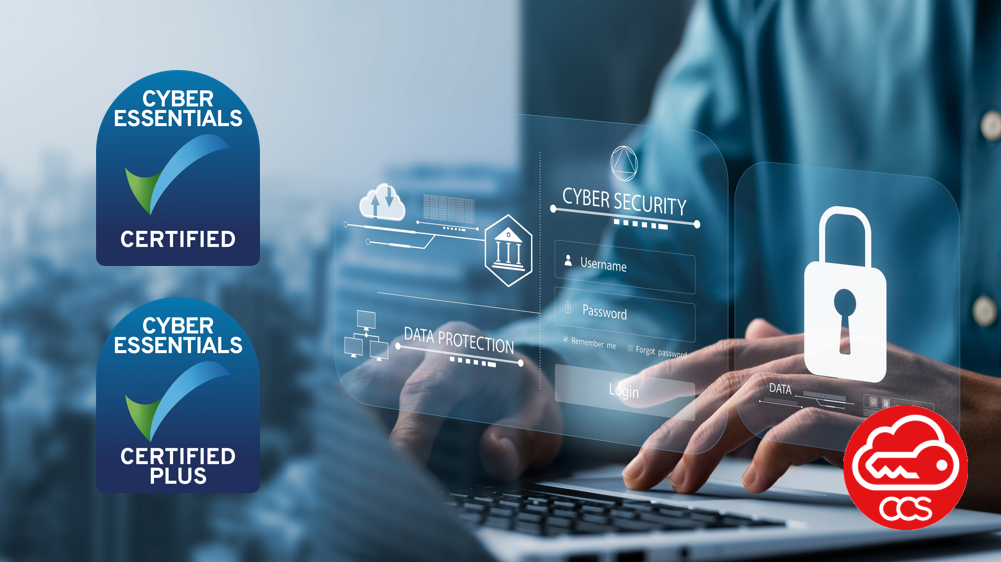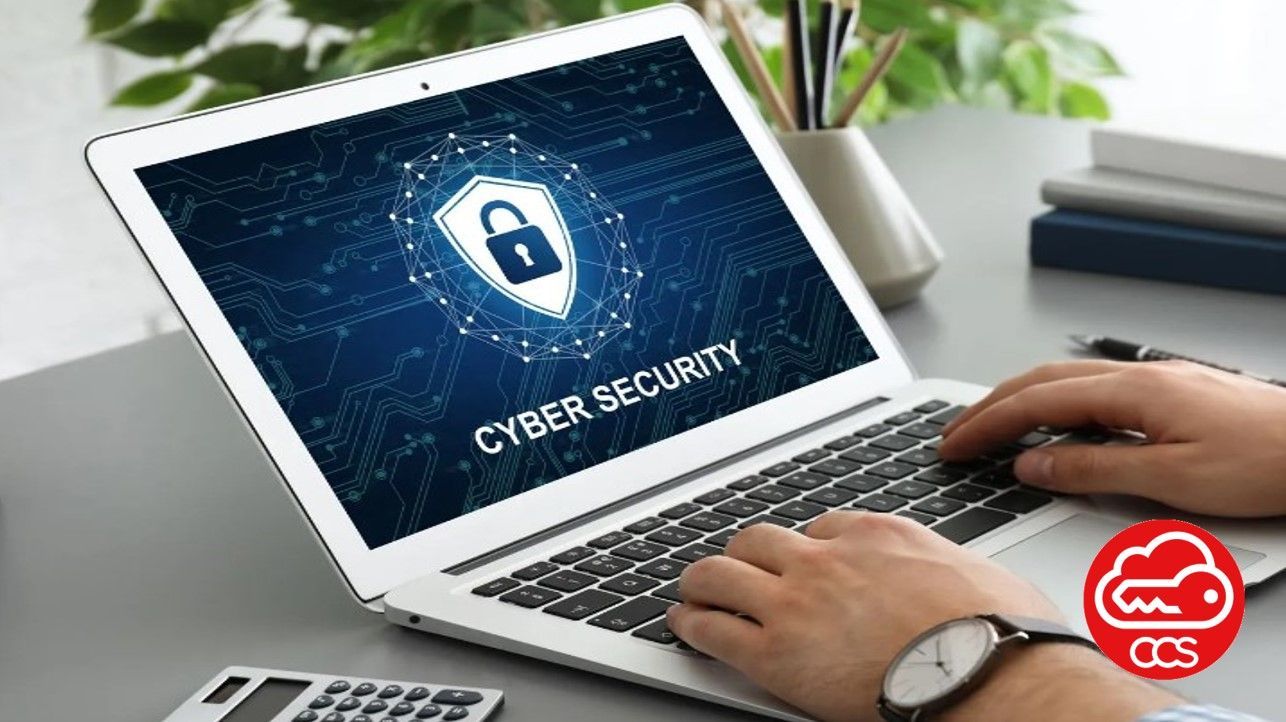Strengthening Cybersecurity:
The Power of Cyber Essentials and ISO 27001 Certification.
In today's digital landscape, businesses face a growing number of cyber threats that can compromise sensitive data, disrupt operations, and damage reputation. To protect themselves, organisations must prioritise cyber security measures. Cyber Essentials Certification serves as an essential first step, providing a strong foundation. However, to further fortify their defences, businesses should consider achieving ISO 27001 certification. This article explores the benefits of both Cyber Essentials and ISO 27001 certifications and how they work together to enhance cybersecurity.
Understanding Cyber Essentials Certification:
Cyber Essentials is a government-backed scheme developed to help organisations safeguard against common cyber threats. It focuses on five key technical controls:
- Boundary Firewalls and Internet Gateways
- Secure Configuration
- User Access Control
- Malware Protection
- Patch Management
The Benefits of Cyber Essentials Certification:
- Enhanced Security:
- Cyber Essentials Certification ensures that organisations have implemented essential cyber security controls to protect against common cyber threats. It serves as a solid foundation for building a robust security posture.
- Risk Mitigation:
- By implementing the five technical controls, businesses can mitigate the risk of cyber attacks, reducing the likelihood of successful breaches.
- Compliance and Trust:
- Cyber Essentials Certification demonstrates a commitment to cyber security best practices, helping organisations meet regulatory requirements and instilling trust in customers, suppliers, and partners.
- Business Opportunities:
- Many government contracts and business tenders require Cyber Essentials Certification, making it a valuable asset for organisations looking to secure new opportunities.
Taking the Next Step: ISO 27001 Certification:
ISO 27001: An internationally recognised standard, ISO 27001 provides a comprehensive framework for managing information security risks. It goes beyond the technical controls of Cyber Essentials, focusing on the broader management of information security within an organisation.
Achieving ISO 27001 Certification:
Organisations can build upon their Cyber Essentials Certification to achieve ISO 27001 by implementing an Information Security Management System (ISMS) that aligns with ISO 27001 requirements. This involves:
- Conducting a comprehensive risk assessment
- Developing policies and procedures
- Implementing controls to mitigate identified risks
- Regularly auditing and reviewing the ISMS
The Benefits of ISO 27001 Certification:
- Holistic Security Approach:
- ISO 27001 Certification ensures a systematic and proactive approach to managing information security risks across the organisation. It covers not only technical controls but also physical security, human resources, and processes.
- Legal and Regulatory Compliance:
- ISO 27001 helps organisations meet legal, regulatory, and contractual obligations related to information security, providing evidence of compliance during audits and assessments.
- Enhanced Reputation:
- ISO 27001 Certification enhances the organisation's reputation, demonstrating its commitment to information security and instilling confidence in stakeholders.
- Continuous Improvement:
- ISO 27001 promotes a culture of continuous improvement by establishing processes for monitoring, measuring, and enhancing information security practices over time.
- Business Resilience:
- With ISO 27001, organisations are better equipped to prevent and respond to security incidents, ensuring business continuity and minimising the impact of disruptions.
- Competitive Advantage:
- ISO 27001 Certification can differentiate organisations from competitors, positioning them as trusted partners for customers and suppliers who prioritise robust information security.
Cyber security is a critical aspect of any organisation's operations, and both Cyber Essentials and ISO 27001 certifications play crucial roles in strengthening defences. While Cyber Essentials Certification provides a fundamental baseline of technical controls, ISO 27001 Certification takes a comprehensive approach to managing information security risks. By combining these certifications, businesses can enhance their cybersecurity posture, mitigate risks, and build trust with customers and partners.
By starting with, or even having Cyber Essentials Certification, organisations establish a solid foundation of essential technical controls that protect against common cyber threats. This certification helps businesses meet compliance requirements, reduce risks, and open doors to new opportunities. However, to further elevate their security measures, organisations should consider pursuing ISO 27001 Certification.
ISO 27001 Certification takes a holistic approach to information security management, addressing not only technical controls but also organisational processes, policies, and risk management. It enables organisations to establish a robust Information Security Management System (ISMS) that systematically identifies, mitigates, and manages information security risks. Achieving ISO 27001 Certification demonstrates a commitment to excellence in information security, compliance with regulations, and continuous improvement.
By combining Cyber Essentials and ISO 27001 Certifications, organisations create a powerful cyber security framework. They strengthen their defences against evolving threats, build resilience, and enhance their reputation as trustworthy custodians of sensitive data. Additionally, the certifications provide a competitive edge in the market, positioning organisations as reliable partners for customers and suppliers who prioritize robust information security.
In conclusion, while Cyber Essentials Certification sets the stage for cyber security, ISO 27001 Certification takes it to the next level. Together, they form a comprehensive approach to safeguarding critical information assets, mitigating risks, and maintaining a proactive stance against cyber threats. By embracing both certifications, organisations demonstrate their commitment to protecting data, ensuring compliance, and fostering trust in an increasingly interconnected and vulnerable digital landscape.
Remember, cyber security is an ongoing journey, and these certifications serve as valuable milestones in the pursuit of continuous improvement and resilience in the face of evolving cyber security challenges.






